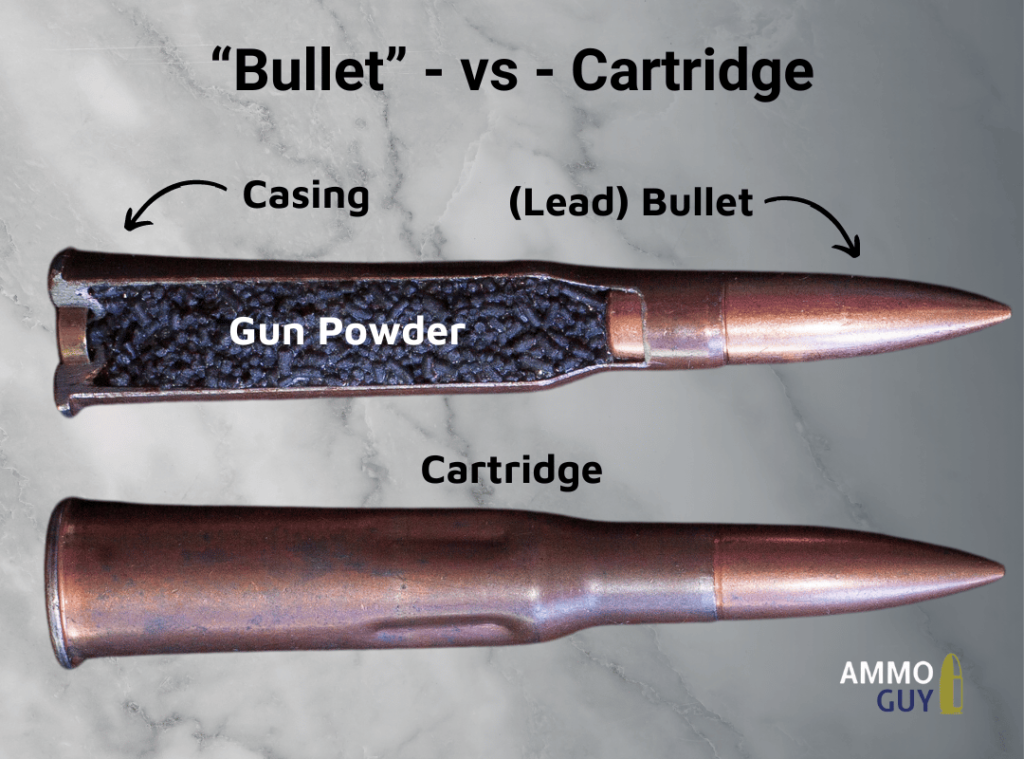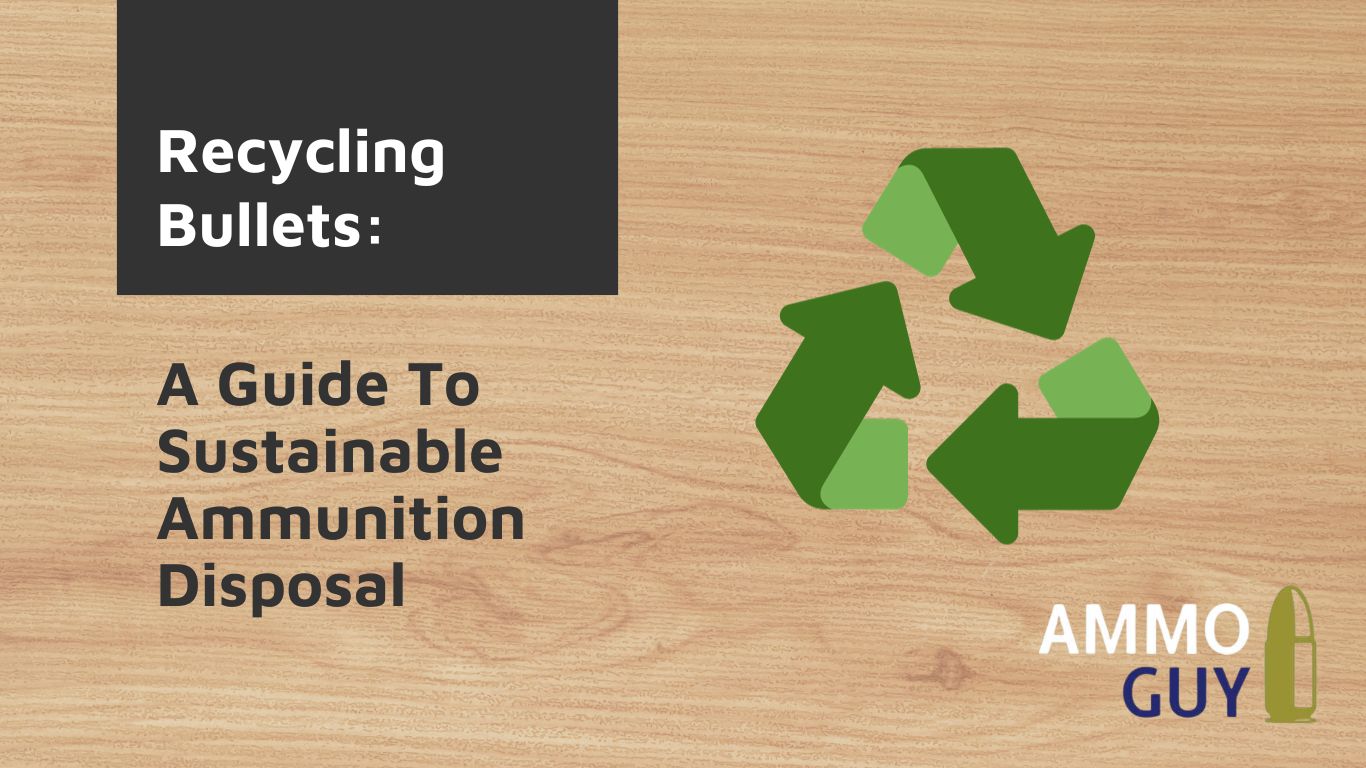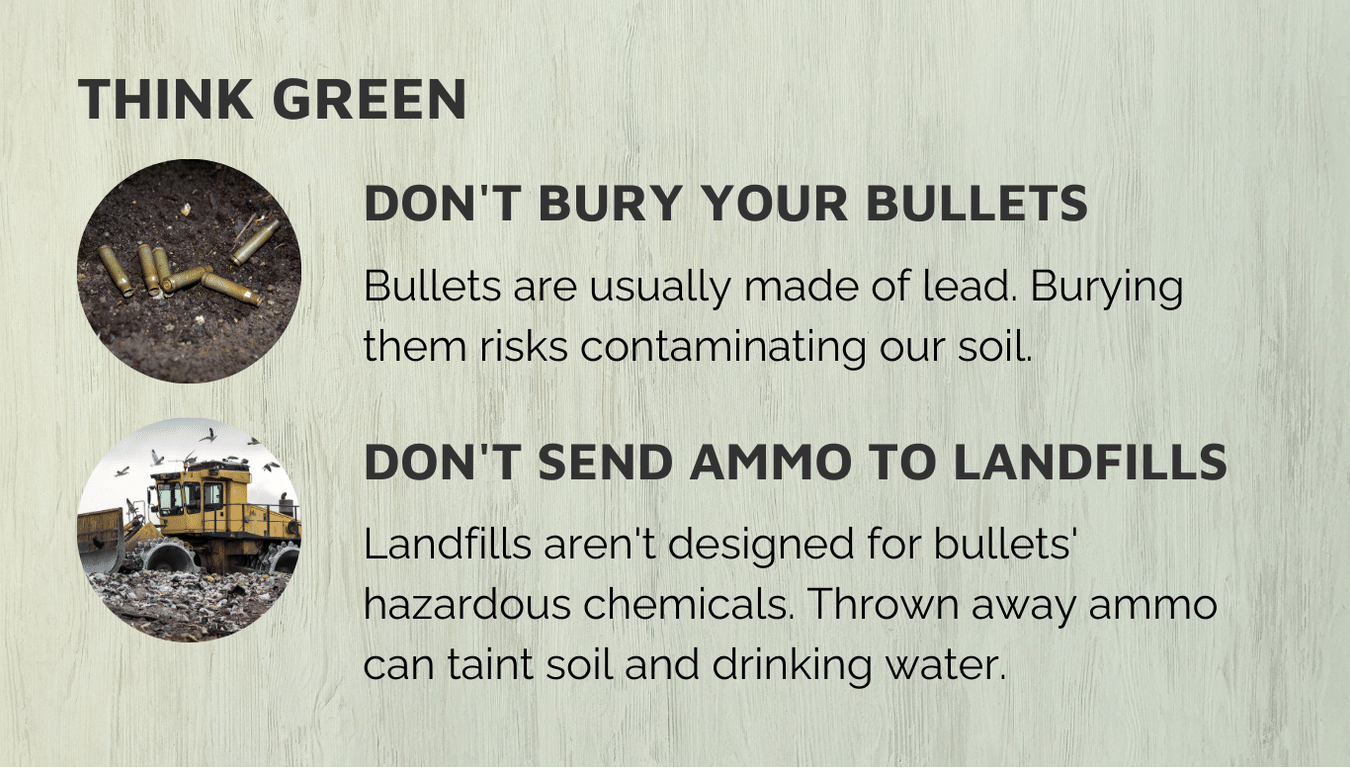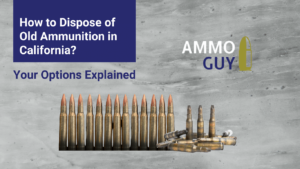When you think of recycling, bins filled with paper and plastic probably jump to mind. But what about recycling bullets? Ammunition disposal is an important, albeit often-overlooked, aspect of sustainability. If you've come across unwanted ammo and seek an environmentally-friendly disposal method, this guide is for you.
Recycling Bullets: Is It Possible?
Let's debunk a myth right away: unused ammo cannot be recycled in the traditional sense. When it comes to the idea of recycling bullets, we need to expand our understanding of what that entails. Given that ammunition is an explosive, its recycling requires a far more complex approach than, say, tossing a plastic bottle into a blue bin.
Why Can't I Toss Them With Regular Trash?
Disposing bullets with regular trash is problematic for multiple reasons:
- Legal Implications: In places like California, improperly discarding ammunition, be it in the trash or in public areas, is illegal and could lead to misdemeanor charges.
- Environmental Impacts: Lead, a primary component of most bullets, poses significant environmental and health threats if discarded improperly.
- Safety Concerns: The explosive nature of ammunition poses risks to sanitation workers and the general public if improperly disposed of.
The Anatomy of a Bullet
To truly grasp the complexities of recycling bullets, it's essential to understand what they are made of. But first, let's clarify some terminology.
Bullet vs Cartridge: The Difference
It's a common misconception to refer to the entire cartridge as a "bullet". However, the bullet is merely one part of a cartridge. An ammunition cartridge is a complex assembly consisting of the bullet, casing, primer, and gunpowder.

Cartridge Components
While ammunition cartridges as a whole can't be traditionally recycled, dissecting its components reveals different opportunities. So what are the components of an ammunition cartridge?
- Bullet (Projectile): The main projectile, that's fired from a firearm, typically made from lead or a lead alloy.
- Casing (or Shell): The container for the ammunition's components, predominantly made of brass.
- Primer: A small explosive compound responsible for igniting the gunpowder.
- Gunpowder (or Propellant): The explosive element that propels the bullet when ignited.
The 3 R's of Recycling Bullets
Navigating the world of recycling can be tricky, especially when it comes to items like bullets. The trusty "Reduce, Reuse, Recycle" principle isn't just for your everyday recyclables. When it comes to ammunition, these guidelines offer a clear roadmap for responsible ammuition disposal. Let's delve into how they can guide your approach to recycling bullets.
Reduce: The Importance of Limiting Ammunition Waste
In the world of recycling, "Reduce" translates to curbing our waste. For ammunition, this means being smart about how you handle bullets you no longer wish to keep. Unfortunately, many individuals aren’t aware of the environmental risks associated with improperly discarded bullets. The core issue? Bullets contain lead, a toxic substance that can leach into soil and water, adversely affecting local ecosystems and posing health risks to communities relying on that water and soil.
Solution: To truly make a difference, don't let your unwanted ammunition end up in landfills. Avoid disposing of your bullets in the trash, the backyard, or any public space. Instead look for specialized disposal options in your area.
Reuse: The Potential of Repurposing Ammunition
The adage "one man's trash is another man's treasure" rings particularly true when we talk about ammunition. While you might no longer have a use for certain bullets, there's potential for them to serve a new purpose. From police and military training exercises to Boy Scouts working towards their marksmanship badges, ammunition finds purpose in many places. Lead, the primary material in bullets, is notably recyclable. Unlike many materials, lead doesn't degrade over time, making it perfectly suited for repurposing.
It's interesting to note that lead boasts one of the highest recycling rates, with the leading lead application industry in the US (lead batteries) achieving a remarkable 99% recycling rate.
Old bullets can be melted down and reshaped, ready for a host of new applications. This not only keeps bullets out of landfills but also reduces the demand for new lead mining, helping conserve our planet's resources. However, while this recycling process is beneficial, it isn't widely accessible to individual users. Handling and melting lead requires precautions due to the health risks linked with lead exposure.
Solution: Ammunition disposal organizations offer the most secure and lawful method for discarding unwanted ammo. They provide convenient on-site collection, ensuring the safe removal and proper disposal of your ammunition.

Schedule Your Free Ammunition Pickup Today
Trust Us to safely remove your unwanted ammo in Southern California
Recycle: Giving Bullet Casings a Second Life
When ammunition is fired, it leaves behind the bullet casing. While live ammunition itself isn't suited for conventional recycling, these casings represent a valuable recyclable component. Most bullet casings are crafted from brass, a recyclable and valuable metal. While brass is predominant, you'll also find casings made of steel and aluminum, both of which are recyclable.
Solution: For a streamlined recycling process, sort your casings by their respective materials:
- Steel Casings: These are magnetically reactive and can be sorted using a magnet.
- Aluminum Casings: Light in weight and uniquely colored, they stand out and can be sorted with ease.
- Shotgun Shells: These often have plastic parts. It's advisable to separate this plastic, as it could diminish the recycling value.
Before you consider recycling bullet casings, it's imperative to clean them thoroughly. Ensuring that any residue of gunpowder is completely removed is a crucial step, as many recycling facilities won't accept casings with this residue intact. Once prepared, these casings can then be taken to a scrap metal facility for recycling.
Options for Disposing & Recycling Bullets
Given the complexities of recycling bullets, is bullet recycling a feasible option for the average person? The nuanced answer is: it largely depends.
While breaking down ammunition to its base components isn't always feasible for everyone, there are various methods to responsibly dispose of or recycle bullets. Whether you're a casual shooter or have stumbled upon a stash of old rounds, finding an eco-friendly solution is key. So, what are your options?
1. Partner With An Ammunition Disposal Service
Consider partnering with a local ammunition disposal service, like Ammo Guy, for a hassle-free ammo disposal experience. For California residents seeking a straightforward solution for their unwanted bullets, Ammo Guy provides complimentary on-site ammunition removal in Orange County, Los Angeles and throughout SoCal. If you're outside these areas, California Gun Services can help. For more details on safe and legal ammo disposal in California, refer to our article on the subject.
2. Surrender To Local Law Enforcement
Handing over smaller 'personal use' quantities to your local police station offers a trustworthy method for disposal. They're equipped to handle and properly dispose of ammunition.
3. Donate to Gun Ranges
If your bullets are in decent shape and you possess only a small amount, shooting ranges might be willing to accept. However, it's crucial to remember that these establishments aren't mandated to take in unwanted ammunition. To avoid any hitches, it's wise to ring them up first and inquire about their collection protocols. Some might have dedicated days or timings for accepting these.
4. Hazardous Waste Collection Events
Hazardous waste centers or specialized waste facilities rarely accept bullets. But if you're patient and okay with temporarily storing the ammo, there might be local collection events dedicated to such disposals. The Earth911 recycling locator can guide you to the upcoming events around you.
Ammo Guy's Commitment to Environmentally-Conscious Ammo Disposal
At Ammo Guy, we're here to help people in Orange County and throughout Southern California with reliable ammunition disposal. Our focus? Keeping our community safe and the environment clean.
- On-Site Removal: We'll come to you and collect any unwanted ammo, from unused, live ammo to old corroded ammunition and bullet casings. We provide a convenient service so people don’t improperly dispose of ammo when they feel they have no other way of getting rid of them.
- Working with Local Authorities: Safety is our top priority. We work hand-in-hand with local law enforcement to ensure any unsafe or illegal ammo is dealt with properly.
-
Thorough Inspections: Every round we collect undergoes a meticulous inspection. This ensures each piece is directed to the right channel, whether that's repurposing, recycling, or surrendering to authorities. As for casings, we clean, sort, and recycle them, playing our part in minimizing waste.
Conclusion
Recycling bullets might not fit the conventional recycling mold, but it's an essential aspect of environmental conservation. By choosing responsible disposal, you not only ensure safety but also contribute to a greener planet. If you're in California and have ammunition to dispose of, remember that Ammo Guy is here to assist, ensuring that your bullets are recycled safely and responsibly.



